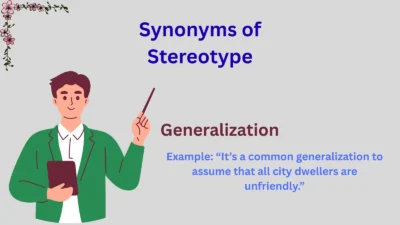Synonyms of Mr T Character lion-like refers to his courageous, bold, and commanding personality, much like the strength and pride of a lion. For example, in his iconic roles, Mr. T often shows fearlessness, leadership, and a protective nature that inspires those around him.
Describing someone as lion-like helps highlight qualities such as bravery, loyalty, and authority. In Mr. T’s case, it captures both his on-screen persona and real-life reputation for standing strong and defending others.
If you’re writing about personality traits, celebrity personas, or heroic characteristics, understanding Mr. T’s lion-like qualities allows you to convey strength, courage, and charisma effectively. In this guide, we’ll explore what makes his character lion-like and how it manifests in actions, speech, and presence.
What Does Lion-Like Mean in Synonyms of Mr T Character?
Lion-like in Mr. T’s character refers to traits associated with lions, such as courage, strength, leadership, and protective instincts. These qualities make him stand out both on-screen and in real life.
Mr. T’s lion-like persona often shows through:
- Bravery – facing challenges head-on without fear
- Leadership – guiding and inspiring others with confidence
- Loyalty – protecting friends, family, and those in need
- Charisma – commanding presence and strong personality
It’s not just about being strong — being lion-like captures the combination of courage, authority, and heart that defines Mr. T’s enduring image in popular culture.
30 Synonyms & Related Words for Synonyms of Mr. T’s Character
1. Brave
Description: Ready to face danger or challenges.
Example: “His brave attitude kept the team safe during the mission.”
Usage: General, positive; emphasizes courage.
2. Courageous
Description: Possessing strong resolve and fearlessness.
Example: “He was courageous even in the face of overwhelming odds.”
Usage: Formal or literary; admiration-focused.
3. Fearless
Description: Lacking fear in dangerous situations.
Example: “The fearless warrior charged ahead without hesitation.”
Usage: Dramatic, strong; emphasizes boldness.
4. Bold
Description: Confident and willing to take risks.
Example: “His bold decisions saved the day.”
Usage: General; works for actions or personality.
5. Strong
Description: Physically or mentally powerful.
Example: “His strong presence intimidated the enemies.”
Usage: Neutral to positive; versatile for physical or emotional strength.
6. Dominant
Description: Exerting control or authority.
Example: “The dominant leader earned respect effortlessly.”
Usage: Can be neutral or critical; emphasizes authority.
7. Fierce
Description: Aggressive, intense, or powerful.
Example: “He had a fierce look that warned others not to cross him.”
Usage: Dramatic; good for descriptive or emotional writing.
8. Lionhearted
Description: Having great courage or bravery.
Example: “The lionhearted hero never backed down.”
Usage: Literary or positive; metaphorical for courage.
9. Majestic
Description: Having grandeur, dignity, or impressive presence.
Example: “He entered the room with a majestic aura.”
Usage: Formal or literary; emphasizes respect and awe.
10. Heroic
Description: Displaying qualities of a hero; brave and noble.
Example: “His heroic actions inspired everyone around him.”
Usage: Dramatic, positive; moral admiration.
11. Valiant
Description: Bold and courageous in the face of danger.
Example: “The valiant fighter confronted the gang without fear.”
Usage: Literary; formal praise for bravery.
12. Commanding
Description: Exerting authority and attention naturally.
Example: “His commanding presence made the room fall silent.”
Usage: Formal; leadership-focused.
13. Tenacious
Description: Persistent and determined.
Example: “His tenacious spirit never allowed him to quit.”
Usage: Positive; emphasizes perseverance.
14. Resolute
Description: Firm in purpose or belief.
Example: “He was resolute in defending his friends.”
Usage: Literary or formal; emphasizes mental strength.
15. Intimidating
Description: Inspiring fear or respect through power or presence.
Example: “His intimidating glare stopped the bullies in their tracks.”
Usage: Neutral; can be positive or negative depending on context.
16. Protective
Description: Guarding others against harm.
Example: “He was fiercely protective of his teammates.”
Usage: Positive; emphasizes care and strength.
17. Stalwart
Description: Loyal, reliable, and brave.
Example: “A stalwart companion, he never abandoned the mission.”
Usage: Literary/formal; emphasizes loyalty and courage.
18. Indomitable
Description: Impossible to subdue or defeat.
Example: “His indomitable spirit motivated everyone around him.”
Usage: Dramatic/literary; conveys extreme resilience.
19. Assertive
Description: Confidently self-assured and direct.
Example: “He was assertive in demanding justice.”
Usage: Neutral; emphasizes confidence rather than aggression.
20. Gallant
Description: Brave, noble, and chivalrous.
Example: “The gallant warrior faced danger with honor.”
Usage: Literary; formal, emphasizes honor and courage.
21. Fearsome
Description: Inspiring fear through strength or appearance.
Example: “His fearsome reputation preceded him.”
Usage: Dramatic; emphasizes awe and intimidation.
22. Aggressive
Description: Boldly assertive, sometimes combative.
Example: “His aggressive style overwhelmed opponents quickly.”
Usage: Neutral to negative; situational depending on context.
23. Powerful
Description: Having great strength or influence.
Example: “His powerful stance commanded respect.”
Usage: Versatile; physical, emotional, or social power.
24. Courageous-hearted
Description: Emphasizes both bravery and nobility.
Example: “The courageous-hearted leader inspired loyalty in all.”
Usage: Literary; formal admiration.
25. Resolute-minded
Description: Mentally firm and determined.
Example: “Resolute-minded, he never wavered under pressure.”
Usage: Formal or literary; emphasizes mental strength.
26. Dominator
Description: Someone who naturally takes control.
Example: “The dominator of the field left competitors in awe.”
Usage: Informal/literary; highlights authority or dominance.
27. Unyielding
Description: Firm and unwilling to give way.
Example: “His unyielding stance discouraged any challenge.”
Usage: Literary; emphasizes determination.
28. Ferocious
Description: Savage, fierce, or intense.
Example: “His ferocious energy inspired fear and admiration.”
Usage: Dramatic; emphasizes intensity and power.
29. Mighty
Description: Strong, powerful, and impressive.
Example: “The mighty hero never backed down from danger.”
Usage: Literary; formal or dramatic.
30. Lion-like
Description: Resembling a lion in courage, strength, or majesty.
Example: “His lion-like demeanor commanded attention.”
Usage: Metaphorical; perfect when explicitly linking to lion traits.
How to Choose the Right Synonym
When describing lion-like traits or Mr. T’s character:
- Formal/Literary: Lionhearted, Valiant, Majestic, Indomitable—great for dramatic or written storytelling.
- Casual/Conversational: Brave, Bold, Fearless, Mighty—friendly and relatable tone.
- Intimidation-Focused: Fierce, Fearsome, Intimidating, Ferocious—emphasizes power and awe.
- Admiration/Positive Traits: Protective, Stalwart, Gallant, Tenacious—highlights moral and social qualities.
Cultural context also matters. Lion-like imagery works universally, but terms like dominant or aggressive may carry slightly different connotations depending on the audience.
Conclusion :
Synonyms of Mr T Character help capture his lion-like qualities with precision. Words like fearless, heroic, commanding, loyal, and brave each highlight a different aspect of his bold and inspiring persona.
Using the right synonyms allows you to convey his strength, leadership, and charisma effectively, whether describing his on-screen roles, real-life actions, or personality traits. These alternatives make your writing vivid, engaging, and reflective of the courage and authority that define Mr. T’s character.



